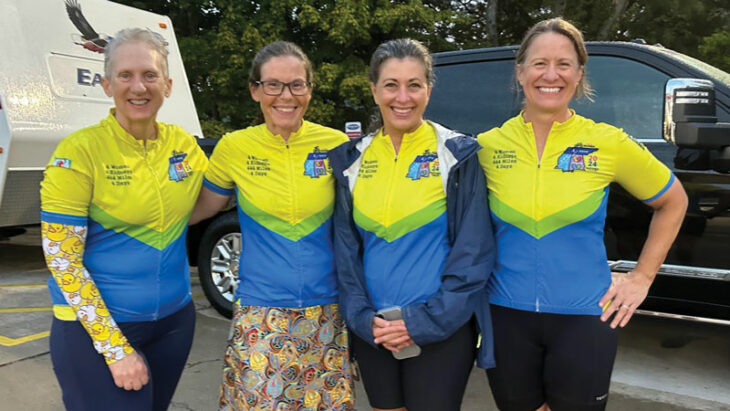Having just all met each other in person for the first time after months of online planning, the four riders started the ride less than an hour later. Pictured, left to right: Becky Bussey, Rebekah Thomas, Diane Mills and Anna Cannington. Photo by Janet Wright
Anna Cannington did not know Dustin Rippetoe when she saved his life in 2019.
Cannington, a Vancleave resident, heard of Rippetoe through mutual friends and their strength-training community, StrongFirst. Grappling with end-stage kidney disease, Rippetoe desperately needed a transplant.
“It didn’t occur to me to be the donor until I saw a local news story about a cashier who donated to the wife of a customer,” Cannington recalls. “I loved the story and realized I could do that, too.”
As it happens, Cannington’s brother is a nephrologist and taught her how the donation process works. Most often, the donor is a relative, but it’s becoming more common for altruistic people like Cannington to help a friend, acquaintance or even a stranger.
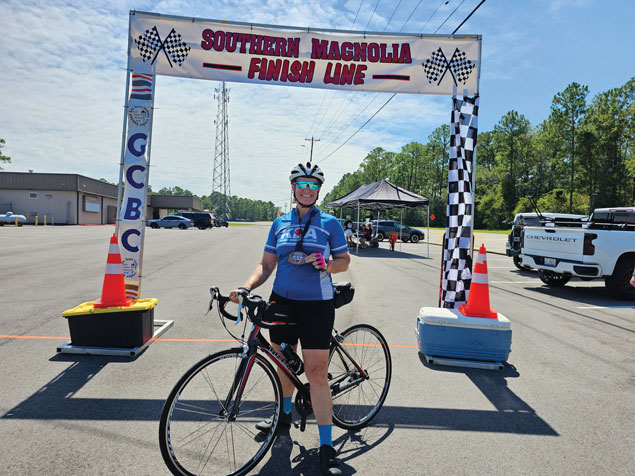
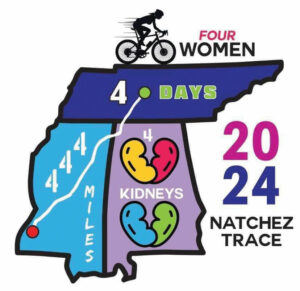 To raise awareness and promote the gift of life, 56-year-old Cannington participated in 4Women 4Kidneys 444Miles 4Days in September. She and fellow riders Becky Bussey of Colorado, Rebekah Thomas of Vermont and Diane Mills of Mississippi biked the entire 444 miles of the Natchez Trace Parkway over four days, all while sharing their personal donation stories.
To raise awareness and promote the gift of life, 56-year-old Cannington participated in 4Women 4Kidneys 444Miles 4Days in September. She and fellow riders Becky Bussey of Colorado, Rebekah Thomas of Vermont and Diane Mills of Mississippi biked the entire 444 miles of the Natchez Trace Parkway over four days, all while sharing their personal donation stories.
“The name and theme are catchy, so we hope to catch attention,” Cannington says. “The more people see and realize what living kidney donation is all about, the more we open up possibilities for people to be open to the idea.”
‘A BIG TEAM EFFORT FROM THE BEGINNING’
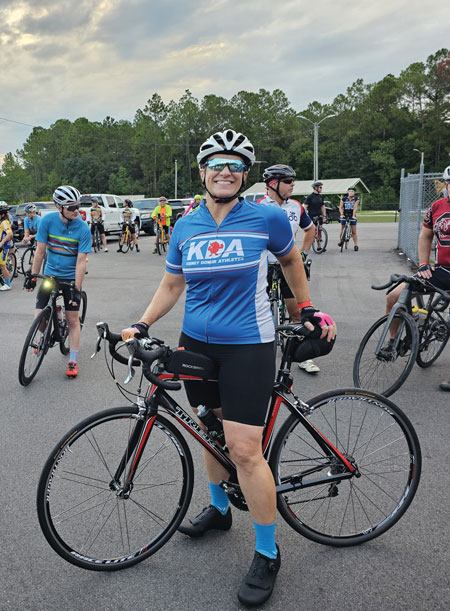
The event was a natural fit for Cannington, who has been cycling since 2008. She started strength training in 2014 and enjoyed it so much that she became a certified personal trainer.
When Rippetoe came on her radar, the retired U.S. Air Force member, wife, mother and stepmother saw an opportunity to do something meaningful.
“Everyone spoke highly of him and felt he was very deserving of help,” Cannington says. “The community held fundraisers and helped spread the word for need of a donor, so it felt like a big team effort from the beginning.”
The process took about six months, culminating with the surgery in June of 2019. A blood test that March determined she was a match, meaning her blood type was compatible and Rippetoe did not already have antibodies against the donor tissues.
Throughout the experience, Cannington kept a journal — which helped her greatly when it came to processing her thoughts and feelings.
There are a lot of aspects to consider, some ups and downs; you learn a lot about yourself going through something like this. I found waiting challenging — waiting for answers, test results, knowing how things would turn out — but now I feel like it’s a superpower. I am able to take things as they come and be accepting of all possible outcomes.
“There are a lot of aspects to consider, some ups and downs; you learn a lot about yourself going through something like this,” she says. “I found waiting challenging — waiting for answers, test results, knowing how things would turn out — but now I feel like it’s a superpower. I am able to take things as they come and be accepting of all possible outcomes.”
‘FOLLOW THAT FEELING’
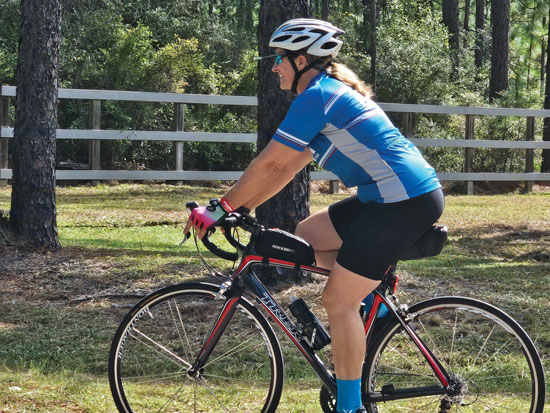
The six-inch scar Cannington bears from the procedure has healed well, and her selfless gift has inspired her sister, Julie Wright, to follow suit. After a health journey that saw her lose 110 pounds, Wright donated a kidney that went to a woman in Minnesota.
As for Rippetoe, he now lives in Oklahoma City and has a good prognosis, according to Cannington.
By completing the four-day trek, Cannington says, she and her fellow cyclists have shown that living kidney donors still can do challenging physical endeavors.
To those considering living organ donation, Cannington’s advice is to trust your instinct.
“If the opportunity comes your way, you’ll have a feeling about whether it’s right for you; follow that feeling,” she says. “If you can help someone, go for it! I am so glad I did.”
Living kidney donation by the numbers
- 90,000: Number of people in the United States waiting for a kidney
- 3–10 years: Typical wait time for a deceased kidney donor
- 90 days: Typical wait time for a kidney patient to find a matched kidney from a living donor through the National Kidney Registry
- 10–15 years: Length of time the average kidney from a deceased donor lasts
- 20–40 years: Length of time the average kidney from a living donor lasts
- 6,860: The number of living donors who donated a kidney in 2019 — a record.
* Info from www.kidneyregistry.com/for-donors


